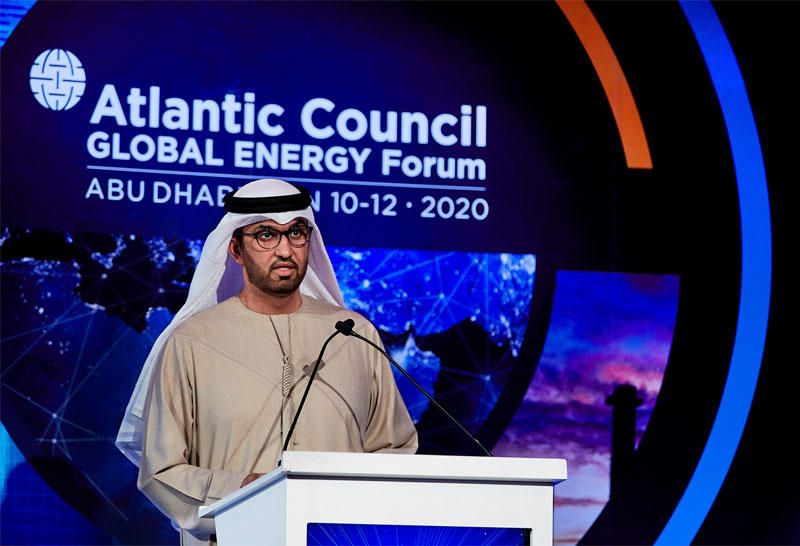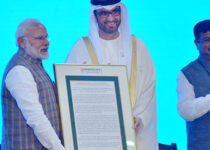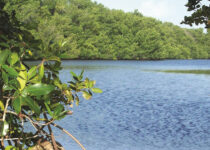His Excellency Dr. Sultan Ahmed Al Jaber, UAE Minister of State and Group CEO of the Abu Dhabi National Oil Company (ADNOC), today, addressed the opening of the 4th Atlantic Council Global Energy Forum taking place in Abu Dhabi as part of the Abu Dhabi Sustainability Week (ADSW).
H.E. Dr. Al Jaber began his remarks by noting geopolitical tensions have dissipated over the past few days and wisdom, balance, and diplomacy appear to be prevailing.
Addressing energy leaders and policymakers, H.E. Dr. Al Jaber went on to say that while geopolitical uncertainties remain, the global economy going into 2020 appears to be in better shape than last year. He said with trade tensions easing, manufacturing showing signs of renewed growth and global consumer spending strengthening, we can look forward with cautious optimism.
H.E. Dr. Al Jaber highlighted the impact of these global economic trends on energy demand and outlined the UAE and ADNOC’s response to the fast-evolving energy landscape.
“This economic outlook means both the short and long-term demand for energy remains robust. Over the next two decades, we will see growth of at least 25 percent in energy demand. This is a rate of increase that no single source can satisfy and presents the key challenge of how to produce more energy with fewer emissions.
“Here in the UAE, we see this challenge as an opportunity and a natural extension of our existing energy leadership. In the last 10 years, we have grown our solar capacity 400 percent and invested in renewable energy projects approaching 12 gigawatts here in the UAE and across 25 countries around the world.
“We are also adding clean nuclear power to our domestic portfolio. Working closely with the International Atomic Energy Agency, this year, the UAE will be the first country in the region to operate a safe commercial, peaceful nuclear power station,” H. E. Dr. Al Jaber said.
H.E. Dr. Al Jaber emphasized that as the UAE drives clean sources of energy, it is also responsibly growing its hydrocarbon resources to ensure reliable flows of energy to global markets.
“At ADNOC, we are on track to increase crude oil production capacity to 4 million barrels per day by the end of this year. And we made significant new discoveries last year that moved the UAE from 7th to 6th largest oil and gas reserves in the world. In fact, we are also on a path to achieve gas self-sufficiency and to ultimately become a net exporter,” H.E. Dr. Al Jaber said.
Commenting on ADNOC’s legacy of strong environmental stewardship, H.E. Dr. Al Jaber said as the company expands across its value chain, it will follow the principles of responsible production set by the late founding father of the UAE, His Highness Sheik Zayed bin Sultan Al Nahyan.
“Our founding father mandated a policy of zero flaring ahead of his time and laid the foundation that has made ADNOC one of the least carbon-intensive oil and gas producers in the world. Today, we are building on this legacy with the region’s first and largest CCUS facility, which currently captures 800,000 tonnes of CO2. And we are expanding this carbon capture capacity by over 500 percent in the next ten years,” H.E. Dr. Al Jaber said.
As ADNOC responsibly delivers the energy the world needs, the company is also helping shape more transparent market conditions, H.E. Dr. Al Jaber said. He explained that this is the motivation behind ICE Futures Abu Dhabi (IFAD) which the Intercontinental Exchange (ICE) launched two months ago in partnership with ADNOC and major international oil companies (IOCs) to trade Murban, Abu Dhabi’s signature grade of crude.
“Crucially, the new futures market will replace retroactive pricing with forward pricing, allowing buyers to hedge their risk. This will benefit our customers, drive additional value and create an oil market that is more efficient and less volatile,” H.E. Dr. Al Jaber said.
H.E. Dr. Al Jaber concluded by highlighting that this year, as the UAE sets on a path “toward the next 50 years” and prepares for a future that will require more energy with less environmental impact, it will be crucial to bring all stakeholders to the table, from investors and industry to civil society and academia, to work on practical solutions, forge true partnerships and identify investment opportunities.
The two-day Atlantic Council Global Energy Forum has been convened in partnership with the UAE Ministry of Energy, ADNOC, and Mubadala Investment Company as part of ADSW. The two-day event taking place from January 11 to 12 gathers international and regional political, industry, and thought leaders to set the global energy agenda for the year and examine the longer-term geopolitical and geo-economic implications of the changing energy system.
The Atlantic Council is a Washington DC-based think tank. It promotes constructive leadership and engagement in international affairs and provides a forum for navigating the economic and political changes defining the 21st century by informing and galvanizing its influential network of global leaders, with the aim of creating a more secure and prosperous world.







